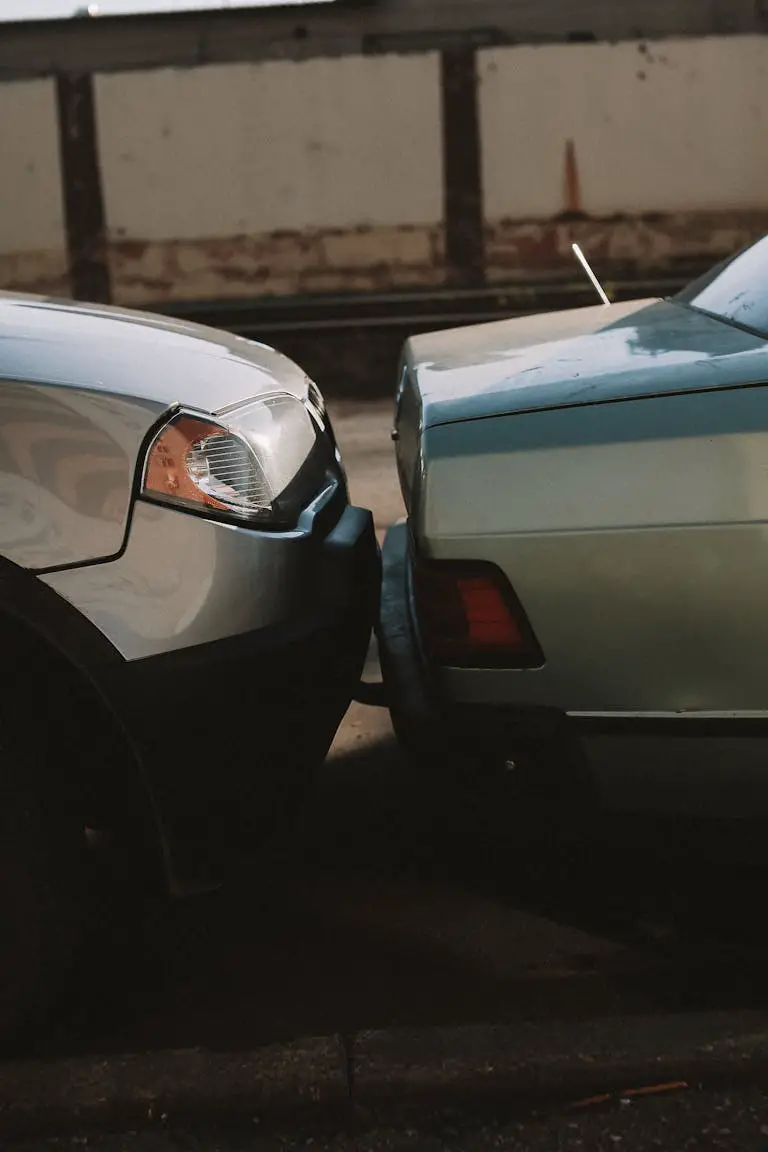How Much Over the Speed Limit is a Felony? Understanding Speeding Laws
Meta Description: Discover when speeding becomes a felony offense. Learn about state laws, aggravating factors, and the consequences of extreme speeding.
Introduction
Most of us have experienced the heart-pounding moment of realizing we’re driving over the speed limit. But at what point does this common traffic violation cross the line into felony territory? The answer isn’t as straightforward as you might think. Let’s explore some eye-opening statistics:
- According to the National Highway Traffic Safety Administration (NHTSA):
- Speeding was a factor in 29% of all traffic fatalities in 2021
- In 2021, 12,330 people died in speeding-related crashes
- The Insurance Institute for Highway Safety reports:
- 41 states have maximum speed limits of 70 mph or higher on some portion of their roadways
- Texas has the highest posted speed limit at 85 mph on some roads
- A study by the Governors Highway Safety Association found:
- 11 states operate speed cameras to enforce speed limits automatically
These statistics underscore the seriousness with which authorities view speeding. Now, let’s delve into when speeding becomes not just a ticket, but a felony charge.
When Does Speeding Become a Felony?
Contrary to popular belief, there’s no universal speed threshold that automatically turns speeding into a felony. Instead, several factors come into play:
- Absolute speed vs. relative speed:
- Most states don’t have a specific mph over the limit that constitutes a felony
- Instead, they consider the context and potential danger of speeding
- State-specific laws:
- Laws vary significantly from state to state
- Some states have “super speeder” laws for extreme speeding, but these are typically still misdemeanors
- Aggravating factors: Speeding is more likely to become a felony when combined with:
- Reckless driving
- Racing or street racing
- Causing injury or death
- Repeat offenses
- Driving under the influence
- Specific circumstances:
- Speeding in school zones or construction areas can lead to enhanced penalties
- Fleeing from law enforcement at high speeds is often a felony
- Federal vs. state jurisdiction:
- Most speeding offenses fall under state law
- However, speeding on federal property can fall under federal jurisdiction
- Commercial drivers:
- CDL holders may face stricter penalties for speeding
- Excessive speeding can result in license suspension or revocation, effectively ending a trucking career
It’s important to note that while extreme speeding alone is rarely a felony, it can quickly escalate to felony charges when combined with other factors.
State-by-State Breakdown: When Speeding Gets Serious
While felony speeding isn’t common, many states have enhanced penalties for extreme speeding. Let’s look at some examples:
- Virginia:
- Speeding over 85 mph or 20 mph over the speed limit is considered reckless driving
- While typically a misdemeanor, it can become a felony if it results in a fatality
- Georgia:
- The “Super Speeder Law” imposes additional fines for driving over 75 mph on two-lane roads or 85 mph on any road
- This is not a felony but does come with significant penalties
- California:
- Speeding over 100 mph can result in a misdemeanor charge
- Multiple offenses can lead to license suspension
- Illinois:
- Driving 35 mph or more over the limit can be charged as a Class A misdemeanor
- A second offense within a year of a prior conviction can be a Class 4 felony
- Texas:
- Speeding alone is not a felony
- However, racing on a highway is a Class A misdemeanor and becomes a felony if it results in serious bodily injury or death
- New York:
- Speeding more than 30 mph over the limit can result in up to 30 days in jail
- It becomes a felony if it leads to a fatality and is combined with reckless driving
These examples illustrate how states handle extreme speeding differently, with felony charges typically reserved for cases involving additional aggravating factors.
Real-World Examples: When Speeding Turns Serious
To better illustrate how speeding can escalate to serious charges, including potential felonies, let’s examine three realistic scenarios:
- The Street Racer
Situation: Mike, 22, is caught racing his modified sports car against another vehicle on a suburban highway. He’s clocked at 120 mph in a 55 mph zone.
Outcome:
- Charges: Reckless driving, illegal street racing, excessive speeding
- Potential felony: If this is a repeat offense or if the racing caused an accident with injuries
- Consequences:
- License suspension for 1 year
- Hefty fines (potentially $1000+)
- Possible jail time (varies by state, could be 30 days to 1 year)
- Criminal record
- Mandatory completion of driver’s education program
- Long-term impact: Insurance rates skyrocket, potential difficulty finding employment requiring a clean driving record
Key takeaway: Combining excessive speed with reckless behavior like racing dramatically increases the severity of charges and the potential for felony prosecution.
- The Distracted Commuter
Situation: Sarah, 35, is late for an important meeting. While checking emails on her phone, she accelerates to 85 mph in a 65 mph zone, unaware of entering a construction area where the speed limit drops to 45 mph.
Outcome:
- Charges: Speeding, reckless driving, using a mobile device while driving
- Potential felony: Unlikely a felony unless it results in injury to a construction worker
- Consequences:
- Significant fines (often doubled in construction zones)
- Points on driving record
- Possible short-term license suspension
- Mandatory court appearance
- Long-term impact: Increased insurance premiums, potential employment consequences if driving is part of job duties
Key takeaway: Speeding combined with distracted driving in high-risk areas like construction zones can lead to serious charges, even if not reaching felony level.
- The Repeat Offender
Situation: Tom, 45, has a history of speeding tickets. He’s caught driving 95 mph in a 70 mph zone, his fourth significant speeding offense in two years. This time, he attempts to evade the police, leading to a brief chase.
Outcome:
- Charges: Excessive speeding, attempting to elude police, reckless driving
- Potential felony: The attempt to evade police could elevate this to a felony in many jurisdictions
- Consequences:
- Likely felony charges for attempting to elude police
- Extended license revocation (potentially several years)
- Significant jail time possibility (varies by state, could be 1-5 years if charged as a felony)
- Very high fines
- Mandatory drug and alcohol testing
- Installation of ignition interlock device upon license reinstatement
- Long-term impact: Criminal record affecting employment and housing opportunities, travel restrictions, permanent driving record impacts
Key takeaway: Repeating offenses and attempting to evade law enforcement can quickly escalate speeding to felony-level charges.
These examples demonstrate how context, history, and additional factors can turn a “simple” speeding violation into a much more serious offense. While speeding alone rarely results in felony charges, combining it with other reckless behaviors, repeat offenses, or attempts to evade law enforcement can quickly escalate the legal consequences to felony territory.
Unique Scenarios and Outside-the-Box Questions
Now, let’s explore some less common scenarios and questions that people might be searching for but rarely find direct answers to:
- Can you get a felony for speeding on a bicycle? While it’s unlikely, some states have laws that apply vehicular codes to bicycles. In theory, extreme reckless cycling causing injury could lead to serious charges, but it would be highly unusual.
- What if you’re speeding because your car’s computer malfunctioned? This could potentially be used as a defense, especially with the rise of computerized vehicles. However, you’d need to prove the malfunction and that you couldn’t reasonably control the vehicle.
- Can speeding in a boat result in a felony? Yes, it can. Many states have laws against reckless operation of watercraft. While speeding alone might not be a felony, combining it with intoxication or causing injury could lead to felony charges.
- What if you’re speeding to rush someone to the hospital? The “necessity defense” might apply here, but it’s not a get-out-of-jail-free card. Courts would consider whether calling an ambulance was a reasonable alternative.
- Can you get a felony for speeding in a parking garage? While unlikely to be a felony, many private parking facilities have enforced speed limits. Reckless driving causing property damage or injury could potentially lead to serious charges.
- What about speeding in a golf cart community? Some retirement communities have their own traffic rules. While typically not resulting in state charges, extreme reckless behavior could potentially escalate to more serious offenses.
- Can you get a felony for speeding in a funeral procession? Funeral processions often have special traffic privileges. Disrupting one through reckless driving could potentially lead to serious charges, though a felony would be unusual.
- What if you’re caught speeding by a foreign speed camera while driving abroad? This wouldn’t result in a U.S. felony, but some countries share traffic violation data. Extreme cases might affect your ability to rent cars or drive in that country in the future.
- Can speeding in a car with diplomatic plates result in a felony? Diplomatic immunity typically protects against prosecution, but extreme cases can result in diplomats being declared “persona non grata” and expelled from the country.
- What if you’re speeding in a self-driving car? As self-driving technology advances, this question becomes more relevant. Currently, the person in the driver’s seat is typically responsible, but future laws may shift liability to manufacturers in some cases.
These scenarios highlight the complexity of traffic laws and the importance of considering context when it comes to speeding offenses.
Consequences of Extreme Speeding: Beyond the Felony Question
Even when speeding doesn’t result in felony charges, the consequences can be severe:
- License suspension or revocation:
- Many states impose automatic suspensions for extreme speeding
- Repeat offenses can lead to long-term or permanent license revocation
- Hefty fines:
- Fines for extreme speeding can run into thousands of dollars
- Some states impose additional fees or surcharges for “super speeders”
- Insurance ramifications:
- Extreme speeding tickets can cause insurance rates to skyrocket
- Some insurance companies may cancel policies for high-risk drivers
- Points on driving record:
- Most states use a point system for traffic violations
- Accumulating too many points can lead to license suspension
- Mandatory traffic school:
- Courts may require completion of defensive driving courses
- These often come at the driver’s expense
- Vehicle impoundment:
- Some jurisdictions allow police to impound vehicles for extreme speeding
- This can result in significant fees and inconvenience
- Employment impacts:
- Jobs requiring driving may be jeopardized by extreme speeding tickets
- CDL holders face particularly strict consequences
- Travel restrictions:
- Extreme speeding convictions can complicate international travel, particularly to Canada
- Civil liability:
- In accidents involving speeding, the speeding driver may face increased civil liability
- Criminal record:
- Even if not a felony, convictions for reckless driving or extreme speeding can create a criminal record
Understanding these consequences underscores the importance of safe driving and respecting speed limits, regardless of whether the offense rises to the level of a felony.
Frequently Asked Questions About Extreme Speeding and Felony Charges
Let’s address some common questions people have about extreme speeding and its legal consequences:
- Is there a specific speed that automatically makes speeding a felony? No, there’s no universal speed that automatically results in felony charges. It depends on state laws, circumstances, and often involves additional factors beyond just speed.
- Can I go to jail for speeding? Yes, extreme speeding can result in jail time, especially if coupled with reckless driving or repeat offenses. However, jail time for speeding alone is relatively rare.
- How does speeding affect my car insurance? Extreme speeding tickets can significantly increase your insurance premiums. In some cases, insurance companies may even cancel your policy.
- What’s the difference between speeding and reckless driving? Reckless driving typically involves a willful disregard for safety, while speeding can be unintentional. Reckless driving charges often carry more severe penalties.
- Can I lose my license for speeding? Yes, many states have laws that allow for automatic license suspension for extreme speeding or accumulating too many speeding tickets.
- How long does a speeding ticket stay on my record? This varies by state, but typically speeding tickets remain on your driving record for 3-5 years. More serious offenses may stay longer.
- Can I get a speeding ticket dismissed? It’s possible to contest speeding tickets. Success often depends on the circumstances, evidence, and sometimes completing traffic school or other remedial measures.
- Do I have to tell my employer about a speeding ticket? Generally, no, unless your job involves driving or requires you to maintain a clean driving record. CDL holders typically must inform their employers of traffic violations.
- Can speeding tickets affect my ability to rent a car? Extreme speeding or multiple violations could potentially affect your ability to rent a car, as rental companies may check driving records.
- How does speeding in a construction zone differ from regular speeding? Many states have enhanced penalties for speeding in construction zones, including higher fines and more points on your license. It’s more likely to be treated severely by courts.
Remember, while these answers provide general guidance, traffic laws can vary significantly by jurisdiction. Always consult with a local traffic attorney for advice specific to your situation.
Conclusion
While it’s rare for speeding alone to result in felony charges, extreme speeding can lead to severe consequences, including potential felony charges when combined with other factors like reckless driving, injury, or repeat offenses. The key takeaways are:
- There’s no universal speed threshold for felony charges
- State laws vary widely in how they treat extreme speeding
- Context and additional factors play a crucial role in determining charges
- Even if not a felony, extreme speeding can have serious legal, financial, and personal consequences
For all drivers, the message is clear: respecting speed limits isn’t just about avoiding tickets—it’s about safety for yourself and others on the road. Remember, the few minutes you might save by speeding are never worth the potential risks and consequences.
[If you’re facing charges related to extreme speeding or reckless driving, don’t navigate the legal system alone. Our partner service, LegalMatch, can connect you with experienced traffic law attorneys in your area.]Stay safe on the roads, and remember that responsible driving is always the best policy, regardless of the legal consequences.







